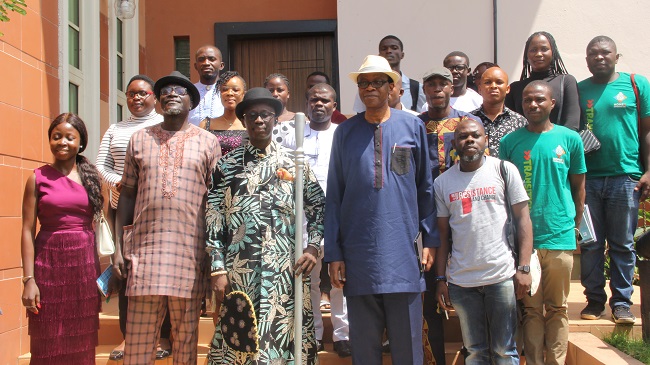
By Nnimmo Bassey
The wise is a knowledge holder and keeper.
Learning is a lifelong process. In other words, we never graduate from the schools of life as long as we are still on planet earth. We learn to walk, to speak intelligibly and we learn to be part of our communities.
Many factors affect our learning and some of these are personal, others are social, cultural and economic. In this information age, we need guidance to navigate the rapidly changing situations with virtually everything around us.
There must be pretty few things that are not in a flux around us. We struggle to keep up with changes in our culture, social norms, environment, politics, education, the arts and even spirituality.
In the midst of the stormy changes, we note that the changes are propelled by humans and human institutions, including corporations.
Wisdom requires a rethink of current modes of production, reproduction and consumption. Consciously retaining understanding of our being, as humans, in the community of other beings is essential in an age such as we are in.
To do otherwise is to become beings that have lost both memory and mind. We need information and we are having more than we can analyze and sift for our purposes. This state of things require that we pause, sit and learn. We need to learn from the wise, the proverbial seated elders who see far beyond what the youths cannot see standing on top of palm trees.
Although the wise do have information, information on its own is not wisdom. Information is like tools in a box. Anyone could own or access the tool box, but only the trained or schooled would know what tools to use and for what purpose.
Mere information is not wisdom. Having a pouch filled with information does not make anyone wise. Knowing what to do with gathered information per time, makes one wise.
Our elders and initiates into diverse age groups hold a vast array of knowledge about our forests, ocean and biodiversity generally. As we know, some of the knowledge are not accessible to all and could get lost if the holders are not available or willing to share such.
Why sit at the feet of the wise and the knowledge holders in natural and less formal settings? We do this with the aim of bridging the gap and building relationships between the learner and the teacher. It is essential to build relationships of trust in order to facilitate knowledge sharing, interrogation and understanding.
Through Learning from the Wise (LftW) we hope to tap into the reservoir of the abundant knowledge of our people from specially knowledgeable and respected individuals.
What are the questions plaguing the youths? How are they interpreting the objective conditions around them? What is their reading of the state of the environment and energy systems? We don’t just want our youths to know the solutions, we want them to know how to find solutions to known problems and even to those yet to occur.
Our hope is that our youths will not only be recipients but agents and broadcasters of knowledge and wisdom using contemporary tools such as those available on social media platforms and which are readily utilized by them.
It is our desire that the youths bear in mind that, like is the case with all teachers, knowledge holders are often not self taught. They learn from other knowledge holders and understand that they hold the knowledge as a sacred trust, as something to be shared with others.
The knowledge cuts across all spectrums of knowing and include those on environment, traditional medicine, varieties of crops and animals, value systems, ceremonials, values and language.
Our knowledge keepers are custodians of our tangible and intangible cultural heritage embodied and manifested in our knowledge system, including fishing and farming systems, customs, poetry, songs, architecture and other art forms.
The fact that the tangible and intangible are closely intertwined as a multilayered tapestries of life urges us to fundamentally look at our learning processes and spaces.
What are the available spaces for learning? Universities? Why not Multiversities? How come our polytechnics are more like monotechnics?
What are our youths educated for? Are they educated for life steeped in solidarity, dignity and respect, or are they trained to be mere economic beings, sold and bought by the highest bidder? Can such narrow educational pathways prepare a people for the increasingly complex challenges they must face?
LftW is a platform for active acquisition of knowledge, bearing in mind the urgent need to propel changes in our society, the kind of change we desire and need. The change that is for the people and from the people.
Nnimmo Bassey is Director, Health of Mother Health Foundation (HOMEF)











